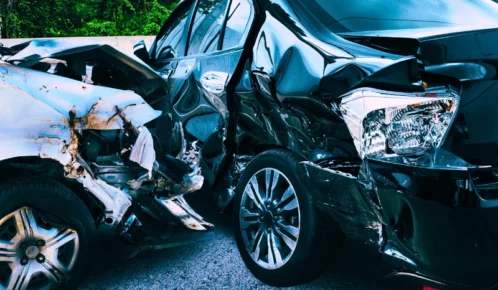You can sue a drunk driver with no insurance in Illinois, but there may not be a point in doing so if the driver lacks assets. However, attorneys can assist you in claiming the maximum amount of compensation you are entitled to from your own insurance company. They can also assess whether a claim against the drunk driver could be fruitful. Some uninsured drivers possess assets, and even bankruptcy does not discharge DUI case claims.
Table of Contents

How to Sue a Drunk Driver Without Insurance
To sue a drunk driver with no insurance, discuss the case with your attorney. In a typical case, the most obvious place to seek compensation would be from the driver’s insurance policy. Since the driver has no insurance in this situation, that is not possible. Let your car accident lawyer handle any investigation into whether the driver has assets and how to proceed. Your lawyer also examines whether there could be other potential defendants, such as a bar or the owner of the car if he or she is a different person than the driver.
The next step could be to look at your uninsured and underinsured motorist coverage. Drivers in Illinois are required to carry Uninsured Motorist Bodily Injury Coverage (UM). It covers situations of bodily injury caused by at-fault drivers with no auto insurance or who are underinsured. It also covers hit-and-run situations.
The minimum limits for UM are $25,000 per person and $50,000 per accident. Policyholders can pay higher premiums to receive higher limits. If you do that, then Underinsured Motorist Bodily Injury Insurance (UIM) is required as well. It covers the difference between your UIM limits and the at-fault driver’s liability limits if they are lower than your UIM limits.
Compensation in a Drunk Driving Accident in Illinois
Seeking compensation from your insurance company’s uninsured and underinsured motorist coverage is similar to filing claims against an insured drunk driver’s carrier. The insurance company investigates the claim.
Doing everything in the proper time frame is important, so you can receive all the compensation you qualify for. Many insurance companies place 30-day deadlines on uninsured motorist claims. At the same time, these claims can be tricky to develop because your medical prognosis may change, and your injuries may not have fully revealed themselves yet. You likely do not yet know exactly how much compensation to seek in general.
Tight deadlines make it critical to work with an attorney. How much a car accident lawyer costs depends on variables such as the case timeline, whether the case goes to court, and whether the case involves injuries, property damage, and multiple parties at fault.
Much of the time, legal claims are on a contingency basis. Lawyers get paid only if and after they win or settle a case. Clients do not pay upfront charges or retainer fees. They give their lawyer a percentage of the win or settlement amount, so they do not have to worry about paying for a lawyer upfront. That is especially useful because many car accidents involve high medical bills, lost income, rehabilitation, and numerous other expenses.
Lawyers have the experience and knowledge to help with critical aspects of the case such as interviewing witnesses, getting medical records from hospitals and doctors, getting police reports, negotiating insurance settlements, proving liability and fault, and recovering compensation.
The amount of compensation you receive may be less if you are found to be at fault. Using a lawyer is a crucial step in how to prove you are not at fault in a car accident. Lawyers can point to documentation of the other driver’s intoxication and other traffic laws violated. Drunk drivers frequently speed, run red lights or stop signs, and fail to yield.
Illinois uses modified comparative negligence. You can recover damages only if you are less than 50% at fault for the injury or damages. The compensation amount can be reduced in proportion to the degree you are at fault, if that applies. As an example, if the drunk driver is assessed at 90% fault and you at 10% fault, you can collect for damages, but the insurance company might attempt to pay only 90% of your damages.
You may be able to get compensation for property damage (damage to the car) and economic and non-economic damages. Economic damages include medical bills and lost income. Non-economic damages include pain and suffering.
Who Can I Sue After a Drunk Driving Accident?
Your lawyer conducts an assessment to determine the best parties to sue after a drunk driving accident. The drunk driver may not be a good one if he or she has no insurance and no assets.
Other parties who are sometimes sued in drunk driving accidents include bars that over-served a drunk driver. This falls under dram shop liability. Illinois does not require that the bar knowingly or negligently served the drunk driver too much alcohol. The law only requires that the bar did serve the drunk driver and that his or her intoxication is at least a partial cause of your injuries.
A claim of negligent entrustment may apply too. In this case, the owner of the car may have negligently entrusted the vehicle to the drunk driver. Your lawyer must show that the owner knew the driver was incompetent and that the vehicle caused the injury.
You help yourself and your case if you get quality medical care after an accident. Get checked out, even if you believe you are not injured. Even fender benders and small car accidents can hurt people quite a bit. Some injuries take time to manifest or progress to their worst stages. Going to a doctor right away establishes a clear cause and effect and verifies that you got prompt treatment to keep your injuries from deteriorating.



